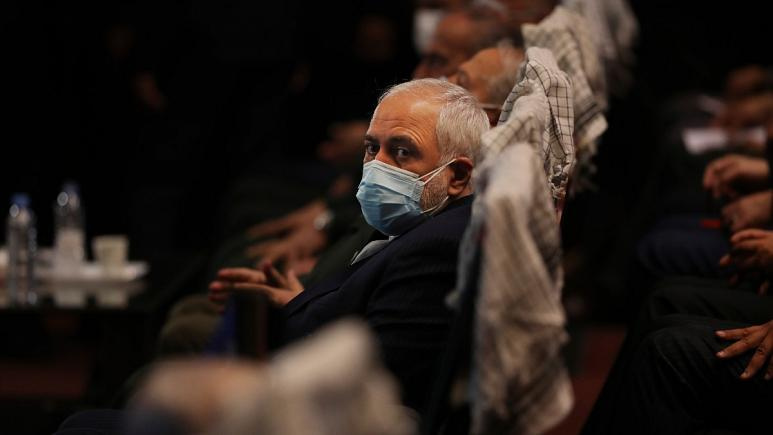In Defense of Foreign Minister Zarif

Whereas Foreign Minister Zarif dutifully participated in a confidential "conversation" as part of the oral history project of the office of presidency, expressing his views openly and without any self-censorship, somehow this has been misconstrued to the point that some politicians and former diplomats have called for Zarif's resignation. This is totally uncalled for and demonstrates the low level of tolerance of these figures for the free flow of ideas and the right of free speech in the Islamic Republic.
One does not have to agree with every point raised by Zarif in his "conversation" in order to arrive at the point that the seasoned diplomat, who has served Iran's foreign policy machinery for four decades must be granted the right and the privilege of expressing his point of view for the sake of transferring his rich reservoir of experience to the future policy-makers in Iran. Zarif's taped "conversation" was apparently one of nearly three dozen such interviews with the various officials of the Rouhani administration, which was leaked to the outside media for the likely purpose of smearing Zarif at home and to nip in the bud any possibility of Zarif's candidacy for the coming presidential race. The timing coincidence of the leak and the elections less than two months away raises this distinct possibility. In turn, the leak represents nothing short of a preemptory manipulation of the presidential race, contrary to the law and the constitution.
With respect to the content of Zarif's taped "conversation," it is important not to confuse his personal views and preferences with those of the ministry led by him. Equally important, per information from the Foreign Ministry, the leaked "conversation" is apparently only less than the full 7 hour conversation and leaves out a significant portion of Zarif's statements, which must be studied as a whole rather than in parts. On the whole, Zarif's statements can be divided in two parts, the previously known and the new information not available to the public before. Again, it is worth remembering that some of Zarif's deputies have since the leak come forward with the information that Zarif had made the same points in the private meetings with other government officials and this is not the first time that he is heard criticizing, e.g., Russia's performance during the nuclear talks. Context is important here because, case in point, Zarif and the Russian Foreign Minister Sergei Lavrov, are friends for three decades, which in turn, allowed them to push the diplomatic envelope and engage in shouting matches with each other
and survive it. In turn, this is a small example of how diplomacy works and that establishing interpersonal relations is an essential ingredient of diplomacy today.
Regarding Zarif's comments on general Soleimani, the taped "conversation" is full of praise for Soleimani and Zarif readily admits that without Soleimani's input Iran's policy toward Iraq and Afghanistan would not have succeeded. Zarif also admits that throughout his tenure in office, he put diplomacy in the service of "the field" (meidan), referring to Iran's regional (security) operations, which is in fact normal and stating the obvious, particularly in light of the extraordinary external threats facing Iran with the rise of ISIS and the like. Concerning Syria and Iran's involvement, other politicians including the former president Mahmoud Ahmadinejad have raised concerns in the past and, certainly, Zarif is not alone in this respect. However, it may well be said that Zarif's reading of the Syrian situation in 2015 was not entirely accurate and the country faced a dire existential threat by the terrorists back then requiring an Iran-Russia concert to turn the tide. General Soleimani played a crucial role in that respect, which is for the history books. But, then again, Zarif repeatedly refers to Soleimani's quest for peace in Yemen and the urgency of ending that calamitous war, which is still raging today, and therefore it is a sheer error to misinterpret Zarif's comments as disparaging a fallen national hero, who was by all indications very dear to his heart. Lest we forget, Soleimani was also an adept diplomat who, e.g., convinced the Kurds to allow the Iraqi government take over the Kirkuk oil fields without a fight, this after having rushed to the Kurds' assistance against the ISIS, when the US had abandoned the Kurds.
One key advantage of Zarif's leaked "conversation" is that it acts as a window for revisiting the key foreign policy issues, such as whether or not there is a diplomacy-security balance and or imbalance that must be re-examined, in light of the improving regional climate and Syrian's slow passage to a post-conflict scenario. Should the present trend continue and we witness a qualitative improvement in Iran-Saudi Arabia relations on the one hand and, on the other, a de-escalation of tensions with the United States as a result of the Vienna talks, then the stage would be set for the normalization of Iran's foreign policy environment where diplomacy and diplomatic skill would play a crucial, if not determining, role. Of course, we still have a protracted and difficult path forward to reach that ideal state, nonetheless the country's national interests call for it and, therefore, it is both illogical and irrational for Iran to dispossess itself of the invaluable soft power diplomacy that is nowadays operationalized in the capable hands of Zarif and his deputies in the efficient Foreign Ministry. A key legacy of Zarif's diplomacy is the net defeat of Trump's "maximum pressure strategy" that faced humiliating defeat at both the UN Security Council and the world court, reflecting the role and input of diplomacy in today's interdependent world. Perhaps, Zarif can now shoulder this historic responsibility even better from a higher platform, as Iran's next president.

